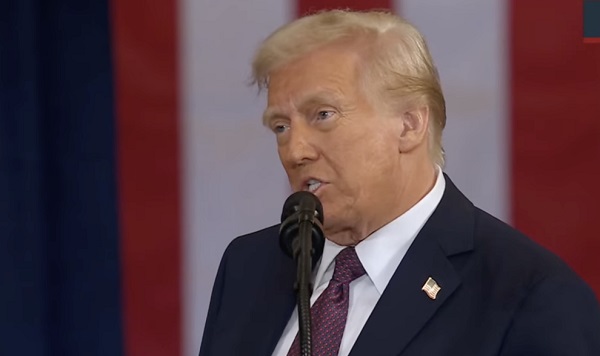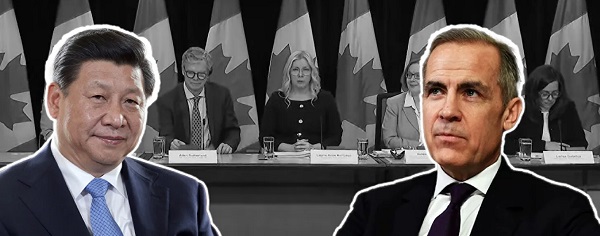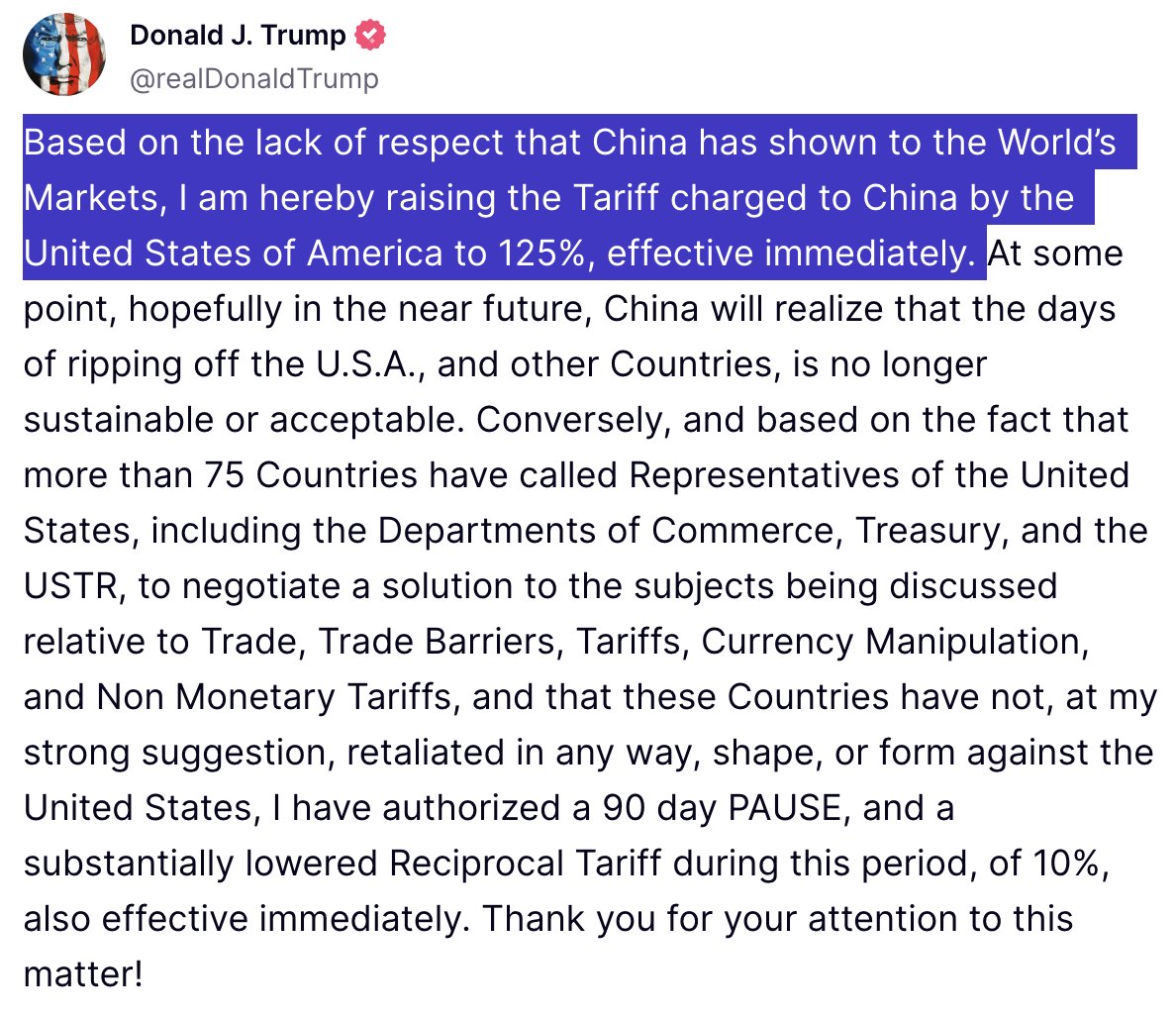Business
Trump gains ground in war against DEI

From The Center Square
By Casey Harper
A major shift is underway in the way large companies talk about and fund Diversity, Equity and Inclusion programs.
President Donald Trump began the transition when he signed an executive order last month eliminating DEI policies and staff at the federal government and extending the anti-DEI policy to federal contractors.
Private companies, some of which had already begun the transition before Trump took office, remarkably began backing off their DEI policies, even if only symbolically with little internal change.
Costco resisted, pushing back on the Trump administration, but other major brands like Amazon Wal-Mart, Target, and Meta announced a pullback from DEI. Media reports indicated DEI discussions on earnings calls has plummeted.
Others, such as Wisconsin-based financial services company Fiserv, have not yet made a change, at least not publicly.
A murky legal future awaits companies willing to take the risk to stick with DEI policies, particularly in hiring.
Fiserv receives hundreds of millions of dollars in government contracts.
According to Fiserv’s website’s Diversity & Inclusion page, the company is “committed to promoting diversity and inclusion (D&I) across all levels of the organization, in our communities and throughout our industry.”
Fiserv says that it “partner[s] with people and organizations around the world to advance our D&I efforts and create opportunities for our employees, entrepreneurs around the world and the next generation of innovators.”
The company’s diversity and inclusion page includes a careers section that discusses “engaging diverse talent” and events to connect with “diverse candidates.”
Critics of DEI initiatives and policies say they discriminate against white men and Asians and lead to hiring and promotion decisions based on factors such as race and sexual orientation rather than merit.
In its 2023 Corporate Social Responsibility Report, the company boasted that “60% of director nominees for the 2024 annual meeting reflect gender or racial/ethnic diversity.”
According to an April 2024 report from Payments Dive, Fiserv was “buoyed by sales to government entities” in Q1 of 2024 and reported $500 million in revenue from those contracts. The U.S. Coast Guard contracted with Fiserv in 2024 to help with payroll, according to HigherGov, among other government contracts.
Fiserv did not respond to multiple requests for comment.
A watershed moment against DEI came when during the Biden administration, the U.S. Supreme Court ruled against longstanding affirmative action policies at American universities, one key example of white and Asian Americans being discriminated against.
Trump’s election has only solidified the new legal framework for what is permissible when considering race and gender in hiring, promotion, and workplace etiquette.
From Trump’s order:
In the private sector, many corporations and universities use DEI as an excuse for biased and unlawful employment practices and illegal admissions preferences, ignoring the fact that DEI’s foundational rhetoric and ideas foster intergroup hostility and authoritarianism.
Billions of dollars are spent annually on DEI, but rather than reducing bias and promoting inclusion, DEI creates and then amplifies prejudicial hostility and exacerbates interpersonal conflict.
DEI has become increasingly controversial as activists use the moniker to advance every liberal policy on race and gender, often at taxpayer expense. In the federal government, DEI had become widespread and infiltrated into every part of governance, from racial quotas for promotions at the Pentagon to driving healthcare research at the National Institutes of Health.
At private companies, DEI policies guided investment decisions via ESG (Environmental, Social Governance) as well as personnel decisions with racial quotas for company board rooms. Those ideas are out of favor with the Trump administration.
Some of the companies resisting the shift from DEI could face legal action.
A coalition of state attorneys general sent a letter to Costco alleging it is violating the law, as The Center Square previously reported.
“Although Costco’s motto is ‘do the right thing,’ it appears that the company is doing the wrong thing – clinging to DEI policies that courts and businesses have rejected as illegal,” the letter said.
This week, Missouri Attorney General Andrew Bailey filed a lawsuit against Starbucks for similar policies.
“By making employment decisions based on characteristics that have nothing to do with one’s ability to work well, Starbucks, for example, hires people by thumbing the scale based on at least one of Starbucks’ preferred immutable characteristics rather than an evaluation of an applicant’s merit and qualifications,” the lawsuit said. “Making hiring decision on non-merit considerations will skew the hiring pool towards people who are less qualified to perform their work, increasing costs for Missouri’s consumers.”
A 2022 Starbucks document touts a DEI goal: “By 2025, our goal is to achieve BIPOC representation of at least 30% at all corporate levels and at least 40% at all retail and manufacturing roles.”
Bailey called the Starbucks policies discriminatory and illegal.
“With Starbucks’ discriminatory patterns, practices, and policies, Missouri’s consumers are required to pay higher prices and wait longer for goods and services that could be provided for less had Starbucks employed the most qualified workers, regardless of their race, color, sex, or national origin,” Bailey said. “As Attorney General, I have a moral and legal obligation to protect Missourians from a company that actively engages in systemic race and sex discrimination. Racism has no place in Missouri. We’re filing suit to halt this blatant violation of the Missouri Human Rights Act in its tracks.”
![]()
Casey Harper
D.C. Bureau Reporter
Business
Trump raises China tariffs to 125%, announces 90-day pause for countries who’ve reached out to negotiate

 MxM News
MxM News
Quick Hit:
On Wednesday, President Donald Trump announced an immediate increase in tariffs on China to 125%, citing “a lack of respect” toward global markets. At the same time, he approved a 90-day pause and tariff reduction for over 75 countries that have engaged with the U.S. on trade reforms.
Key Details:
-
Trump said the dramatic tariff hike on China is meant to send a clear message: “the days of ripping off the U.S.A., and other Countries, is no longer sustainable or acceptable.”
-
The president added that over 75 countries have reached out to the U.S. Departments of Commerce, Treasury, and the U.S. Trade Representative (USTR) to negotiate on issues including trade barriers, tariffs, and currency manipulation.
-
As a goodwill measure, Trump authorized “a 90 day PAUSE, and a substantially lowered Reciprocal Tariff during this period, of 10%, also effective immediately,” noting that these countries had not retaliated against the U.S. despite strong prior warnings.
Diving Deeper:
President Donald Trump on Wednesday took a major step in reshaping the global trade landscape, announcing via Truth Social that he is raising tariffs on China to 125% effective immediately. Trump attributed the decision to “the lack of respect that China has shown to the World’s Markets,” and said it is time for Beijing to face consequences for its trade practices.
“At some point, hopefully in the near future, China will realize that the days of ripping off the U.S.A., and other Countries, is no longer sustainable or acceptable,” Trump stated.
The president emphasized that this was not a blanket policy toward all trading partners. In contrast to China, Trump said more than 75 countries have reached out to American trade officials to address ongoing issues related to tariffs and trade barriers.
“More than 75 Countries have called Representatives of the United States, including the Departments of Commerce, Treasury, and the USTR, to negotiate a solution to the subjects being discussed relative to Trade, Trade Barriers, Tariffs, Currency Manipulation, and Non Monetary Tariffs,” he wrote.
Citing those discussions and the absence of retaliation against the U.S., Trump approved a temporary reduction in reciprocal tariffs for those countries. “I have authorized a 90 day PAUSE, and a substantially lowered Reciprocal Tariff during this period, of 10%, also effective immediately.”
The move reflects a two-pronged strategy—punishing China for what Trump sees as longstanding economic abuses while rewarding countries that have shown a willingness to work with the U.S. to level the playing field.
The 125% tariff marks one of the most aggressive steps in Trump’s America First trade doctrine, likely signaling to both allies and adversaries that a second Trump administration would continue its hardline economic policies.
Alberta
Alberta takes big step towards shorter wait times and higher quality health care

From the Fraser Institute
On Monday, the Smith government announced that beginning next year it will change the way it funds surgeries in Alberta. This is a big step towards unlocking the ability of Alberta’s health-care system to provide more, better and faster services for the same or possibly fewer dollars.
To understand the significance of this change, you must understand the consequences of the current (and outdated) approach.
Currently, the Alberta government pays a lump sum of money to hospitals each year. Consequently, hospitals perceive patients as a drain on their budgets. From the hospital’s perspective, there’s little financial incentive to serve more patients, operate more efficiently and provide superior quality services.
Consider what would happen if your local grocery store received a giant bag of money each year to feed people. The number of items would quickly decline to whatever was most convenient for the store to provide. (Have a favourite cereal? Too bad.) Store hours would become less convenient for customers, alongside a general decline in overall service. This type of grocery store, like an Alberta hospital, is actually financially better off (that is, it saves money) if you go elsewhere.
The Smith government plans to flip this entire system on its head, to the benefit of patients and taxpayers. Instead of handing out bags of money each year to providers, the new system—known as “activity-based funding”—will pay health-care providers for each patient they treat, based on the patient’s particular condition and important factors that may add complexity or cost to their care.
This turns patients from a drain on budgets into a source of additional revenue. The result, as has been demonstrated in other universal health-care systems worldwide, is more services delivered using existing health-care infrastructure, lower wait times, improved quality of care, improved access to medical technologies, and less waste.
In other words, Albertans will receive far better value from their health-care system, which is currently among the most expensive in the world. And relief can’t come soon enough—for example, last year in Alberta the median wait time for orthopedic surgeries including hip and knee replacements was 66.8 weeks.
The naysayers argue this approach will undermine the province’s universal system and hurt patients. But by allowing a spectrum of providers to compete for the delivery of quality care, Alberta will follow the lead of other more successful universal health-care systems in countries such as Australia, Germany, the Netherlands and Switzerland and create greater accountability for hospitals and other health-care providers. Taxpayers will get a much better picture of what they’re paying for and how much they pay.
Again, Alberta is not exploring an untested policy. Almost every other developed country with universal health care uses some form of “activity-based funding” for hospital and surgical care. And remember, we already spend more on health care than our counterparts in nearly all of these countries yet endure longer wait times and poorer access to services generally, in part because of how we pay for surgical care.
While the devil is always in the details, and while it’s still possible for the Alberta government to get this wrong, Monday’s announcement is a big step in the right direction. A funding model that puts patients first will get Albertans more of the high-quality health care they already pay for in a timelier fashion. And provide to other provinces an example of bold health-care reform.
-

 conflict1 day ago
conflict1 day agoZelensky Alleges Chinese Nationals Fighting for Russia, Calls for Global Response
-

 2025 Federal Election1 day ago
2025 Federal Election1 day agoHarper Endorses Poilievre at Historic Edmonton Rally: “This Crisis Was Made in Canada”
-

 Energy2 days ago
Energy2 days agoEnergy group urges Trump administration to restock oil reserves
-

 Business2 days ago
Business2 days agoTrump eyes end of capital gains tax in 2025
-

 Bruce Dowbiggin2 days ago
Bruce Dowbiggin2 days agoBettman Gives Rogers Keys To The Empire. Nothing Will Change
-

 2025 Federal Election2 days ago
2025 Federal Election2 days agoPoilievre Will Bring in ‘One and Done’ Resource Approvals, and Ten Specific Projects Including LNG Canada Phase II
-

 2025 Federal Election2 days ago
2025 Federal Election2 days agoElection Security Briefing Confirms CCP-Linked Operation Boosted Carney
-

 2025 Federal Election1 day ago
2025 Federal Election1 day agoAn In-Depth Campaign Trail “Interview” With Pierre Poilievre











